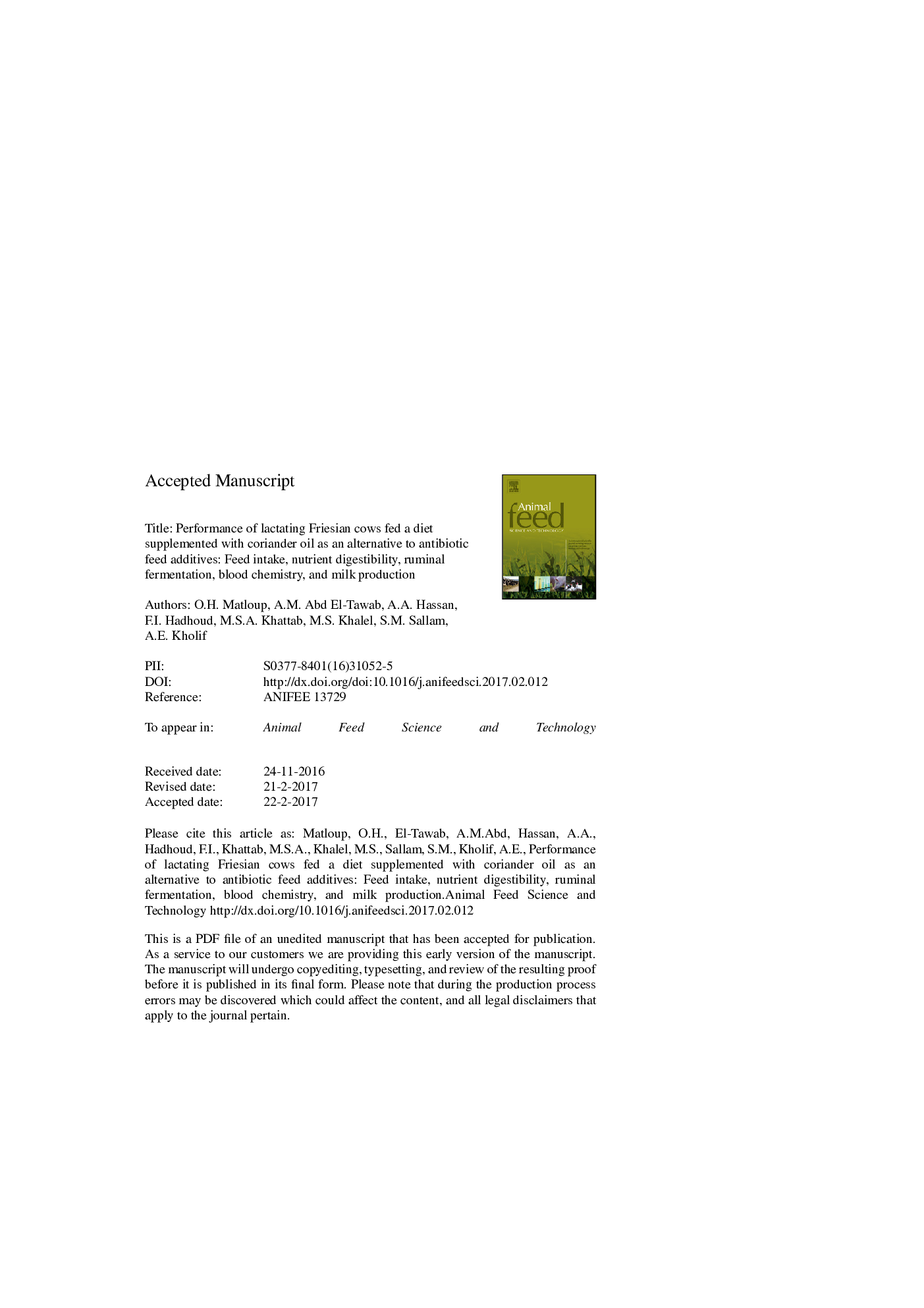| Article ID | Journal | Published Year | Pages | File Type |
|---|---|---|---|---|
| 5538891 | Animal Feed Science and Technology | 2017 | 34 Pages |
Abstract
Thirty multiparous lactating Friesian cows (523 ± 8.9 kg BW) were used to study the effect of feeding coriander oil, a natural feed additive, versus salinomycin; an ionophore. Early lactation Friesian cows were used for 63 days in a completely randomized experimental design with repeated measures. Cows were randomly assigned to three treatments and fed a basal diet of concentrates, berseem clover (Trifolium alexandrinum) and rice straw in a ratio of 40:40:20 DM basis. The treatments were: (1) the basal diet with no additive (Control treatment); (2) the basal diet supplemented with 4 g/cow daily of salinomycin (Salinomycin treatment); and (3) the basal diet supplemented with 14 mL coriander oil/cow daily (Coriander treatment). Cows in the salinomycin and coriander groups had greater feed intake (P < 0.001) and nutrient digestibility (P < 0.01) than control cows. Ruminal ammonia-N concentration was lowered (P < 0.001) with coriander versus the other two treatments. Concentrations of total and individual short-chain fatty acids were not affected (P > 0.05) by the salinomycin and coriander treatments. Greater serum glucose concentration (P = 0.013), without affecting other blood measurements, was noted with coriander and salinomycin treatments. Similarly, coriander and salinomycin resulted in greater (P < 0.05) daily outputs of milk, energy corrected milk, fat, and milk energy, and both salinomycin and coriander improved milk efficiency (P < 0.05) compared with control. It is concluded that coriander oil at 14 mL/cow daily can replace ionophore salinomycin in the diet of early lactating Friesian cows. Enhanced feed utilization and lactational performance were observed with coriander oil supplementation without any negative effect on animal health.
Keywords
ADFomNDFomNH3-NECMGPTSCFAammonia-NFeed utilizationShort-chain fatty acidsFeed additiveacid detergent fibre expressed exclusive of residual ashenergy corrected milkGOTMilk productionCoriander oilether extractneutral detergent fibre expressed exclusive of residual ashorganic matterdry mattercrude proteinGlutamate-oxaloacetate transaminaseglutamate-pyruvate transaminase
Related Topics
Life Sciences
Agricultural and Biological Sciences
Animal Science and Zoology
Authors
O.H. Matloup, A.M. Abd El Tawab, A.A. Hassan, F.I. Hadhoud, M.S.A. Khattab, M.S. Khalel, S.M.A. Sallam, A.E. Kholif,
